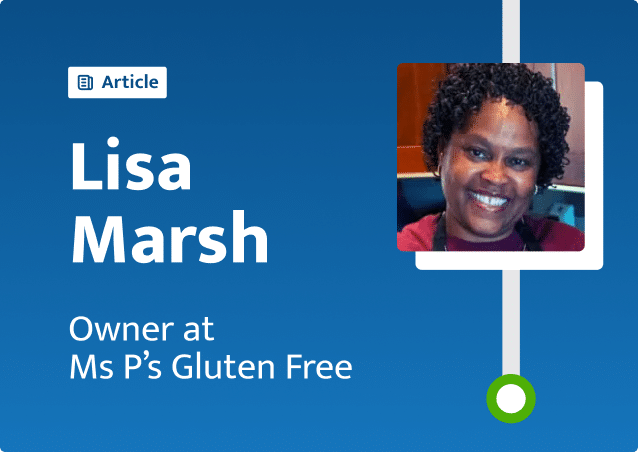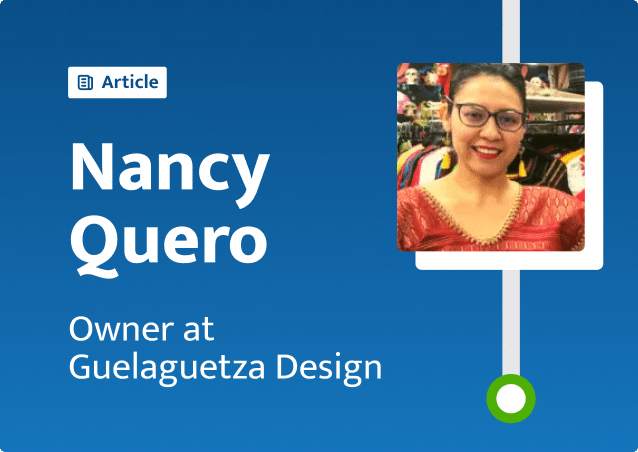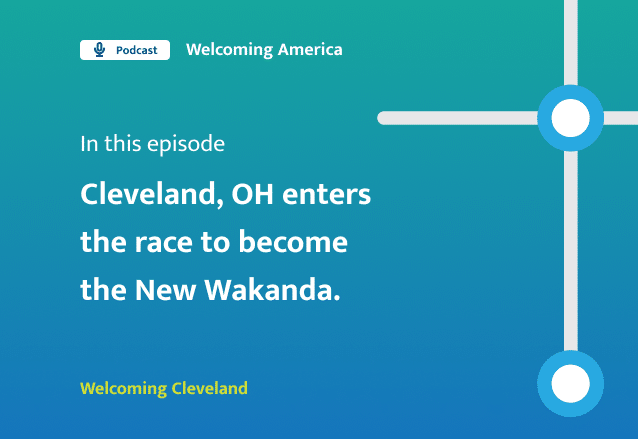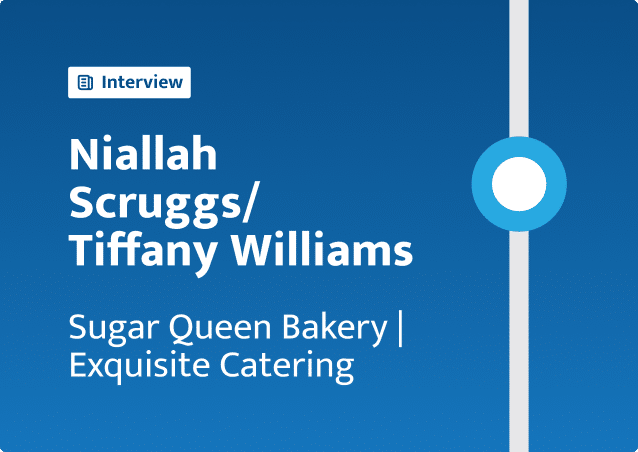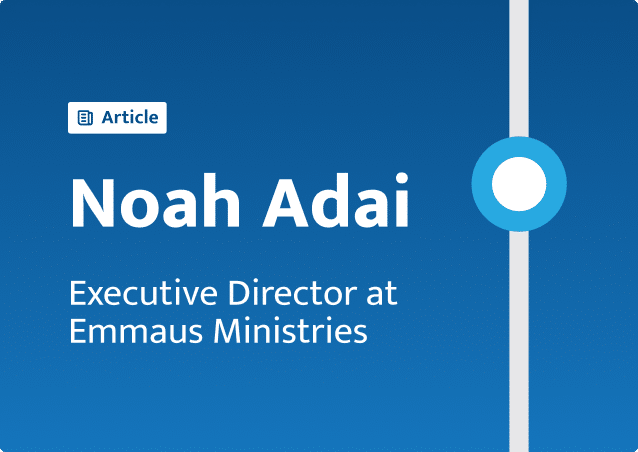GigRoots Podcast | Lisa Marsh Interview | Chicago, IL |
Introduction:
In this episode, I talk with Lisa Marsh from Chicago, Illinois. Her baked goods business is called Ms. P’s Gluten Free. After spending 20 years in public service, Lisa jumped into retirement ready to begin her journey as an entrepreneur. Like many others, she couldn’t have predicted all the recent changes that have transpired in retail. And she describes the challenge to receive government assistance in the midst of COVID-19.
GR: Lisa, how are you doing today?
LM: I am phenomenal. I feel good, but of course with the way that things are in the world, I can’t be super phenomenal, but I’m making it, I’m making it.
GR: We are, we are all dealing with this new reality called COVID-19.
LM: Absolutely.
GR: I want to talk about that with you and how that relates to your business. But before we do that, could I just have you tell me a little bit about your background of your business, Ms P’s Gluten Free and how you got started with it? What was the idea behind it?
LM: Well, we officially started in 2015. But prior to that, we did farmer’s markets. We were trying to figure out, you know, if this was something good and I went through a cohort through Sunshine Enterprises, my very first one. I had no clue. I had no idea about retail wholesale, any of that, about cashflow, about maintaining a business about content marketing, about social media, etc. So I learned from the ground up. So in 2015, after going through the cohort, after trying to understand that I really did want to start a business. I certified as an S-corp and by September of 2016, we were on the shelf at our very first Whole Foods store, which was exciting and exhilarating and scary all at the same time.
LM: But it seems so quickly that we were able to get in. So we felt very privileged, very blessed to be able to do that. And from there, we grew from the one store to then three stores and to now we are in 15 stores and continuing to grow our delicious, healthy, nutritious, and wholesome products. We have a granola that is absolutely phenomenal, no added processed sugar– so good for you– tastes delicious. And I get lots and lots of compliments on it, as well as our delicious cookie bars. And we have those two staple items in 15 Whole Food stores.
GR: Really quickly, I want to touch on something you brought up before you mentioned Sunshine Enterprises. And so of course I’m familiar, but for others who aren’t familiar, we would call them more of an Entrepreneurial Support Organization or an ESO. But what was your experience going through that process?
LM: I loved it because as I said, I had no idea about business at all. All I knew was I had an idea and I started baking because I developed these allergies at 42. My body was doing some crazy things and I couldn’t figure out what was going on. So I kept going to the doctor, the doctor would say, “Hey, stop eating fruits and vegetables that bother you.” Or to cut out dairy stop doing this, this and that. Then I found out from a person that I met, that she was gluten free. So I tried it and it just happened to be my issue. But then I had no idea about moving it to the next level. Everybody said, you should be in stores. You should do this. You should do that. But of course they don’t tell you how challenging it is.
LM: Sunshine told me what cost of goods and services were. They told us about insurance. The first class I was in, I had no clue, as I said, many times. And that raised my hand and said, “Hey, when should we get insurance?” And they were like, “well, before you sell anything, yes.” I was like, Oh, okay. So Sunshine was really my basis, my structure for learning to build the business. And without taking that cohort. I don’t know that we would be where we are today.
GR: You know, I follow you on LinkedIn. And I saw that you did a post just recently that I want to touch on. You mentioned not only what you’re trying to do now in the midst of dealing with the pandemic, but you also mentioned your former place of work and that, I just want to read what you said. When you were applying for relief from several different sources and nothing was panning out. What do you do? And you say that what you did was you sent out a thank you to your former coworkers at MCC. MCC, is the Metropolitan Correctional Center in Chicago. How long were you there at the MCC?
LM: I would say at MCC, I had my final 10 years with the Federal Bureau of Prisons. I did a 27 year bit, which is what we call it. Twenty-seven years with the Federal Bureau of Prisons, I started at FCI Tucson and I retired in 2017 from the Metropolitan Correctional Center in Chicago. Correctional workers are near and dear to my heart because I completely understand what we had to go through. When I worked there– what they’re having to go through now, managing crises. And this one is a huge one. So knowing everything that my former coworkers are having to go through (while) getting very little thanks. I just said, you know, I need to do something. Thanks to those guys who are essential employees who are out there on the front lines and who are risking their lives daily to take care of the rest of us to make sure it’s okay for us to stay home. They don’t get that privilege.
GR: It is something very interesting to note that we’re, we’re all indebted to all the frontline workers that are out there in the various roles that they serve. And I would even include folks at retail establishments and grocery stores as being a part of that experience as well. And so you, you were on the front lines during all of that time, but of course that was in a different reality than the one that we’re facing today. And you mentioned in that post that you said that you are in the midst of trying to apply for relief as a small business owner. Just talk, about the reality prior to the pandemic versus the reality today.
LM: Prior to the pandemic, it was already challenging enough to be a smaller, micro-business trying to break into retail, trying to understand the ins and outs and move forward and grow the business. Growing from the initial one store to the three stores to then 15 stores is hugely challenging because each store is different and it’s not a process where somebody is holding your hand and saying, “Okay, let me walk you through this”. So you’re stumbling along the way, figuring it out. And just when you believe you have a firm foothold on it—a nice grip to where you’re actively communicating with the stores—other obstacles present themselves.And so we’re partners working hand in hand then when the pandemic hit and we’re all unsure as to how to move forward. But the stores will call you and say, “Yes, we love Ms. P’s. And it just does my heart good. And then some of the newer stores that you’re not quite as familiar with– you’re trying to learn their habits and get on board with what they need. It’s an ongoing process.
LM: And so we’re partners working hand in hand, then when the pandemic hit we’re all unsure as to how to move forward. It seems as if the business came to a stop, to a firm halt. We have not had an additional order for Whole Foods. We may have had one from Naperville, but the other stores are very busy trying to also work through these issues and figure out what the needs are. Business has virtually just stopped. Because for us, many of our sales in Whole Foods comes from getting into the stores, sampling and talking to customers, letting them know that we exist. Even before the stay at home order, we had already gotten an email from Whole Foods saying that they were no longer sampling, that was going to be halted until they could get a handle on this COVID-19. So as a precaution, they had cut that off prior to us even understanding that we were going to be in a pandemic. So that in essence really stopped what we do.
GR: So you as a business owner are like several other, lots of other small businesses out there that in the midst of all this have applied for some form of relief or government assistance. Tell me about what that process has been like for you so far.
LM: Assistance has been one of the most challenging things I’ve had to endure. They talk about the PPP and the EDI as well, and they talk about other resources. And I think it is a wonderful thing to help with small businesses. But when I look at the requirements, I don’t really meet those. We are just getting to a point where we can start paying people. And we are just starting some of that, which means we don’t really have payroll. So we didn’t even qualify for some of those programs. And they look at last year’s taxes or this year’s taxes to see what your payroll is. And again, if we don’t have that, and we’re just starting to pay people, just getting that foothold, none of those apply for us. So trying to understand what we can or can’t apply for. We’re going through the processes, understanding what the needs are, and then putting in the actual applications and waiting, then hearing nothing.
LM: I would say I put in 10 different applications for resources and information. I’ve got nothing, I’ve got nothing. So it’s like, I appreciate you helping small businesses, but what about those who have had to start from the ground up and are micro businesses and are really pushing to grow and figure this out? And I don’t think, you know, that has been a thought yet. Well, I did see that Chicago finally has a micro business grant, but it’s everybody throws their name in the hat. And then you pray that you get pulled.
GR: So you have applied for the micro-business grant as well?
LM: Yes, I did. I applied for that. I also applied for one for Facebook. But again, I have not heard anything. So as the business owner I have to just get prepared as best as I can to move forward, not knowing if we’re going to get any kind of relief. And that means tapping into personal resources. That means tapping into a small business loan that I had taken from which I still have luckily in our accounts, but I don’t know how long that is going to sustain us, but we will continue pushing forward.
GR: And so while you’re waiting for these other forms of relief, of course, the bigger issue is this seems to have upended your business model.
LM: Yes, absolutely. And so we are also looking at how best to pivot and take a lot of our sales online, which is a challenge because to me, when you’re online, that means that people have to get to know, trust and like you; and that’s a process. That’s not something that happens over weeks or months. To me that takes years of understanding what your business is, what you provide and then being trusted enough to go ahead and place those orders. So we have done some of that and we’re strategically looking at how we can move forward, but we do know that those things take time. I will say this, I have faith of a mustard seed. So we’ll get through this. I do know that. I just don’t know how at this point, but I know God has a plan.
GR: Well, it is an interesting thing that you bring up Lisa, because I think one of the things that we’ve seen during this time is the rapid shift to e-commerce. We were already in an e-commerce age prior to this, but even more so now. So within certain sectors and certain businesses, it seems like e-commerce has been a great way to go for a lot of businesses. What do you imagine for yourself in terms of the e-commerce space moving forward?
LM: I imagine for us that we will end up probably having to step out in faith. As we did with our coworkers at MCC, we can just start mailing out samples, start sending them out. I know for me, having been gluten-free for 10 years, having to be in constant search of those things that are healthy, nutritious, and delicious has been a challenge. And so people who are like me who need these will be doing the same thing. So I’m looking for that tribe of mine who will enjoy and understand these products. Those who are just trying to eat cleaner and healthier. We definitely have to look out for everything that we eat. We’ll need to find people who need that.
